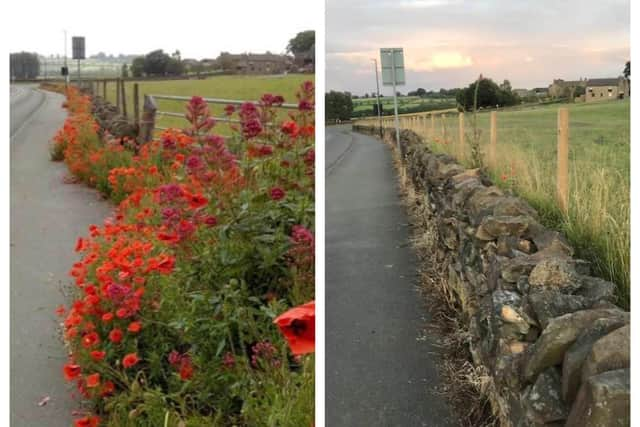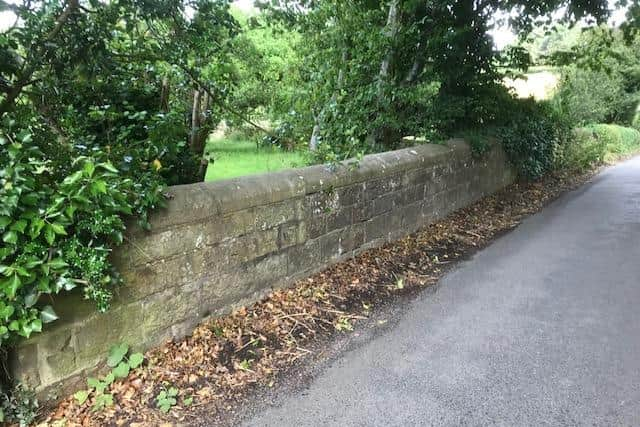Derbyshire residents ‘furious’ as council kills wild flowers with herbicides without consultation
and live on Freeview channel 276
Martin Wilcock, who lives in Barlow, spotted North East Derbyshire Council workmen spraying the grass verges in the village in spring. A few weeks later he noticed the poppies which were growing near his house every year did not appear this time – nor did other wild flowers on the verges across the village.
Concerned, he contacted councilor Pam Jones, who told him the council is using a herbicide called Roundup 480 on the verges to remove weeds and it is ‘totally safe and has been approved for use’.
Advertisement
Hide AdAdvertisement
Hide AdMr Wilcock said: “All edges around the roads where the poppies grew in Barlow are now dead, totally sterile. There’s a lot of concern in the village, particularly on Valley Road by the farm and primary school. There used to be a nice row of poppies, they all have been killed off now. One resident had planted a delightful bed of marigolds around the base of the post box on Chapel Hill which have now died. It is safe to say that residents are furious about this.


"It has knock on impact on the ecology and environment in the area,including pollination, insects and birds that feed on these inspects. The council should stop doing this.
“There has been no consultation with residents. It’s 21st century, you can’t be going around pavements spraying poisonous chemicals over without consultation with general public.
"I have suggested to the council that they should stop poisoning the land and revert to strimming weeds if they must be removed, perhaps by using rechargeable electric strimmers instead of two stroke.”
Advertisement
Hide AdAdvertisement
Hide AdAfter contacting the council Mr Wilcock posted on a local Facebook group to inform residents.


Chris Hill said: “They have killed the marigolds I planted on the top of the island on the chapel hill and the grass that I have replanted for the fourth year after they have killed it with their poison.”
Jo Hunter added: “We should be encouraging bees not killing their food sources, no point in a no mow May that they seemed to do to kill it all off in June and the loss of the poppies is unforgivable.”
Shirley Lindsay said: “That’s terrible that they’re spraying and no-one knew. Wonder what impact it has long term on the soil, run off onto fields.”
Advertisement
Hide AdAdvertisement
Hide AdSue Halksworth commented: “We miss seeing those lovely poppies as well.” And George Davison added: “Probably won’t be like that again for years.”
A spokesperson for North East Derbyshire Council said: “Common practice, requested by DCC to ensure highway safety for pedestrians and road users is to spray along the edge to prevent verge creep onto the road/pathway. This is done to ensure that the vegetation does not undermine highways and also allows for visibility for car drivers. Areas of higher risk such as high speed roads and junctions would require more treatments.
“We are happy to support Barlow Council with wildflower seeds and would actively encourage and support practices to support sustainability principles wherever possible. Where requests are received to reduce spraying, we would need to notify DCC colleagues as the Highway Authority, to confirm that a reduction would not lead to safety issues for pedestrians or road users.”
Comment Guidelines
National World encourages reader discussion on our stories. User feedback, insights and back-and-forth exchanges add a rich layer of context to reporting. Please review our Community Guidelines before commenting.